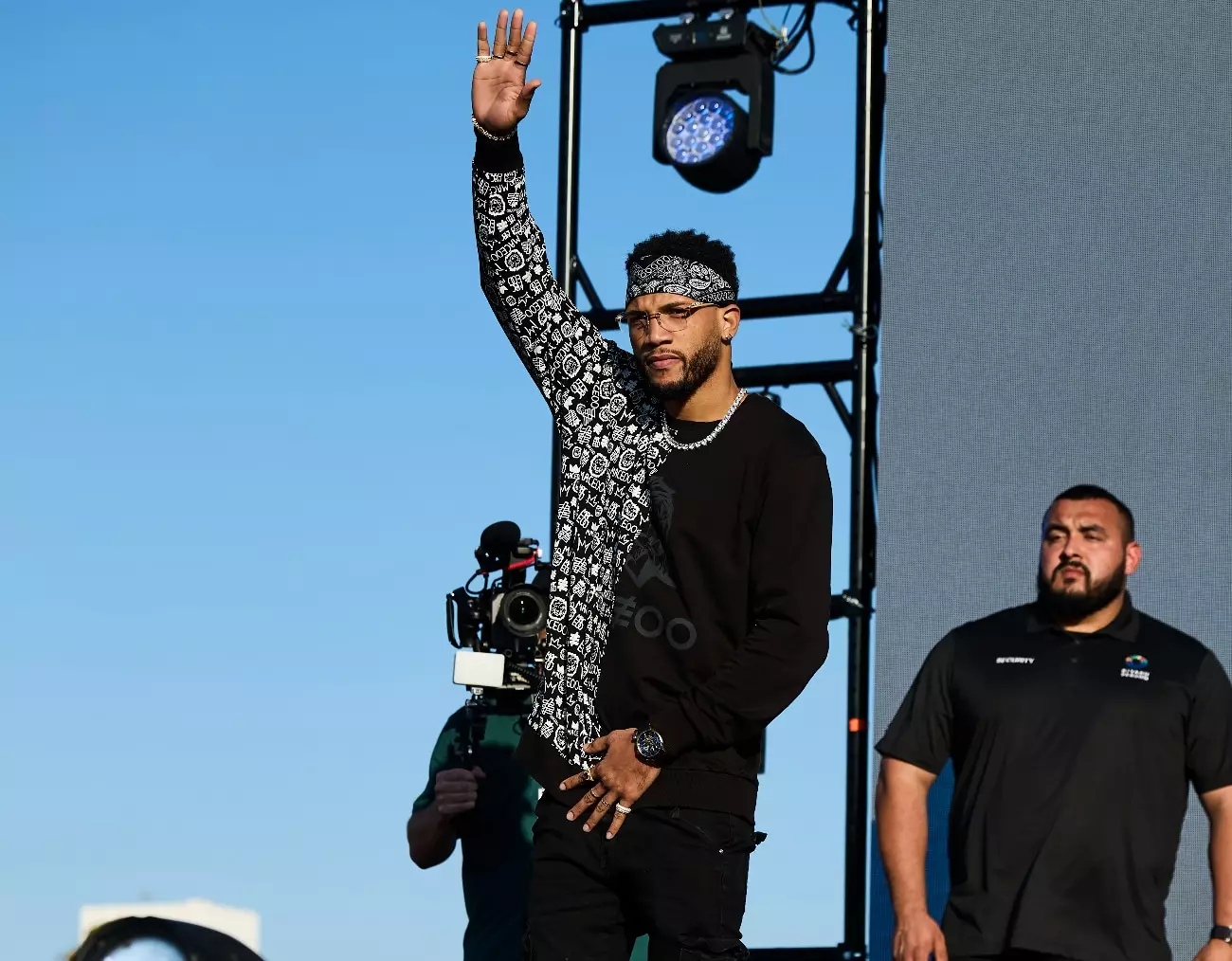Boxing is a sport rife with debates, rivalries, and, at times, contentious judgments about fighter capabilities and career trajectories. A recent discussion has surfaced regarding the standing of David Morrell and Caleb Plant in the boxing landscape, spearheaded by trainer Jose Benavidez Sr. He contends that Plant surpasses Morrell in skill and attributes the early-stage career decision of facing David Benavidez to poor management, raising questions about the strategies utilized by both fighters and their respective teams.
Morrell’s rise in the boxing scene is notable with a record of 11-0 and 9 knockouts under his belt. Yet, Benavidez Sr. expresses concern about Morrell’s decision to step into the ring against the seasoned and undefeated David Benavidez, especially given that Morrell still has much to prove at this nascent stage in his career. He argues that Morrell should have faced fighters like Caleb Plant, Anthony Dirrell, Demetrius Andrade, or Trevor McCumby before diving into such a high-stakes match against a well-established opponent like Benavidez.
However, this critique seems somewhat misaligned with the current realities of the boxing landscape. Morrell has been vocal about wanting to compete with elite fighters, alluding to a desire to step up his game rather than pad his record against declining opponents. It’s worth questioning whether Benavidez Sr.’s sentiments stem from a protective instinct for his son, rather than an astute analysis of the competitive environment Morrell is navigating.
The mention of older fighters such as Andrade and Dirrell presents another layer to this discourse. Benavidez Sr. dismisses these fighters as viable alternatives, claiming they present no significant challenge for Morrell. This critique, however, brings to light the complexities that lie in matchmaking—especially in a sport where age can be both a disadvantage and a factor in drawing viewership and revenue. Relying on fighters nearing the end of their careers can have detrimental effects on a young talent’s development, but it can also provide much-needed exposure.
In this matchup, Morrell faces a fighter in Benavidez who not only carries a strong record but also keen fan support, proving that drawing experience from higher-profile bouts could be more advantageous than it initially appears.
Benavidez Sr. speaks about David’s current form—citing the excitement and maturity he has witness in his training camp. Preparing with the right mentality and physical conditioning is only part of the equation; the psychological aspect plays a crucial role in how fighters perform under pressure. The upcoming bout presents an essential moment for both fighters, but Morrell carries the pressure of proving his worth against an established competitor while asserting his place among boxing’s elite.
However, claiming that increased strength and maturity will bloom in fighters only speaks to part of the scenario. No one truly knows how a fighter will respond under the heightened pressure that comes with high-profile bouts, particularly when they face someone who bears the weight of expectation and legacy.
For Morrell, a victory over Benavidez could lead him to a title shot against the winner of the highly anticipated Beterbiev vs. Bivol rematch, significantly altering the trajectory of his career. The potential financial reward from such matchups represents a consequential motivator, perhaps more so than simplistic comparisons of fighter capabilities.
In a sport that constantly evolves and presses the boundaries of its stars, it is crucial to recognize the interplay of ambition, management decisions, and market dynamics. Rather than merely focusing on who is better between two fighters, it is vital to acknowledge the multifaceted strategies that boxers and their teams must navigate to establish a foothold in such a competitive realm. The tale of Morrell and Benavidez serves as a weaving of fate, risk, and reward that encapsulates the heart of what makes boxing captivating—the unpredictable nature where true contenders rise and marketing prowess can redefine legacies.

